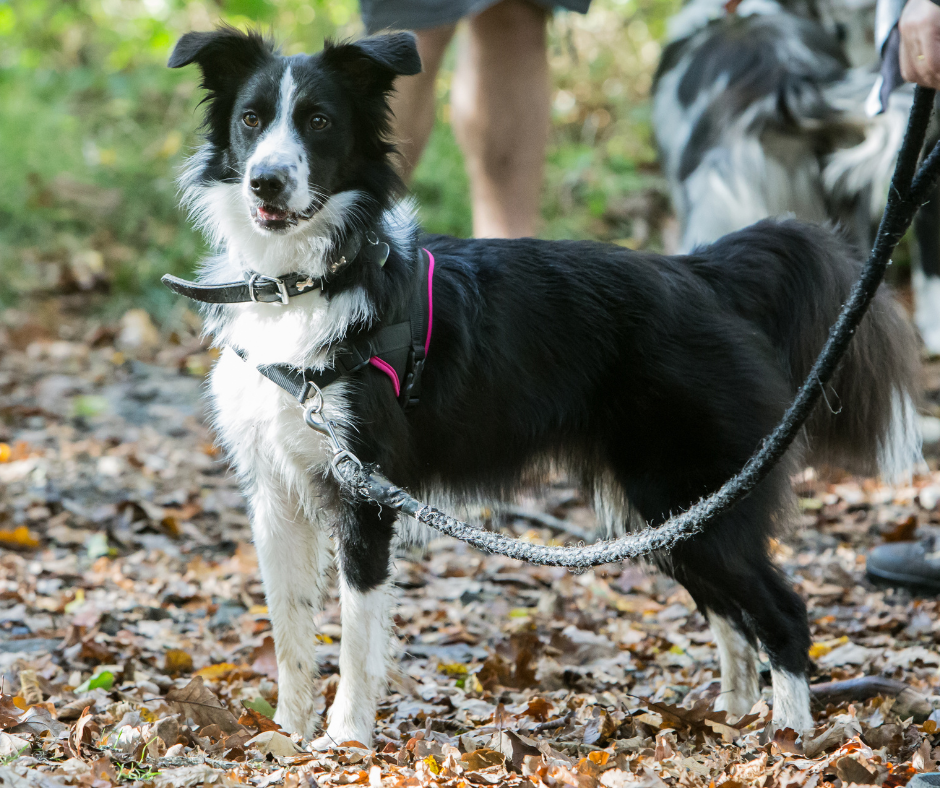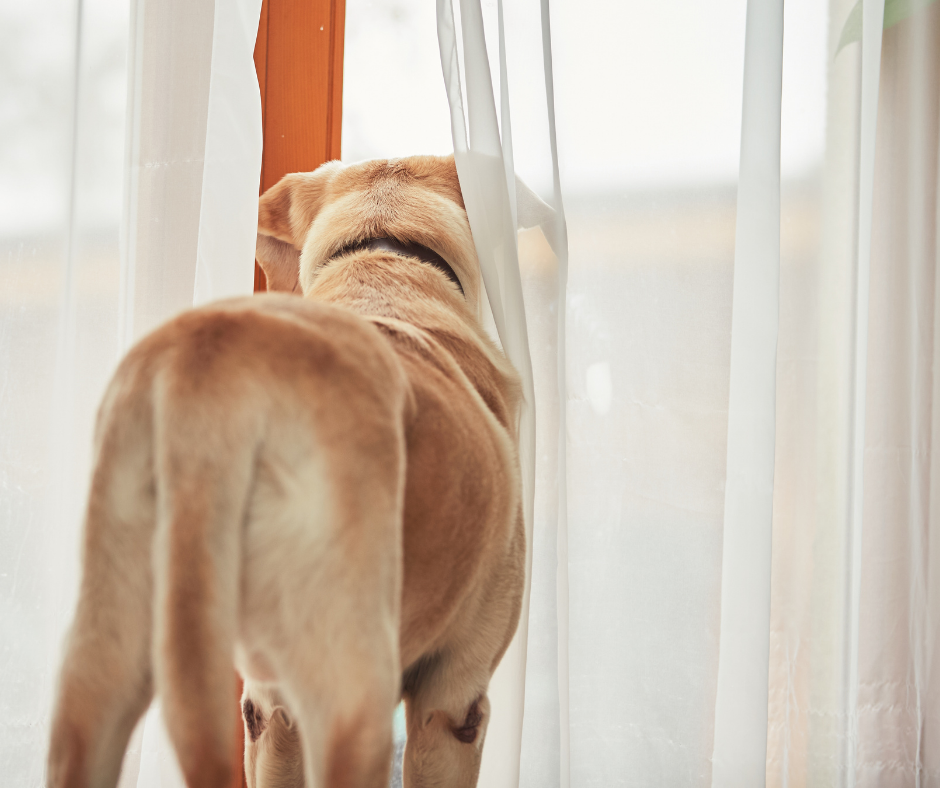How does a dog grieve?
The profound grief that is experienced following the loss of a much-loved pet is a very real emotion that many pet owners will have had to cope with. But is grief unique to humans, or can our pets experience the same feelings of loss that we do? Find out how to help your four-legged family members after the loss of a pet sibling or person that they care about.
Do dogs feel grief?
After the loss of a four-legged or human buddy most owners notice changes in their dog’s behaviour. As pet owners we often attribute human emotions to our pooches, also known as anthropomorphism. It is easy to imagine that our dogs feel grief in the same way that we do but are they really going through the human stages of grief, from denial and anger through to depression and acceptance? The answer is probably no.
So how does a dog grieve? Our dogs do feel grief, just in their own doggy way. You are likely to notice changes in your pooch after loss, but behavioural changes are often different habits resulting from the new dynamic and routine in the household. Scientists have tried to study canine emotions to answer questions like this definitively. Brain imaging studies show that dogs may feel some of the emotions that humans do, but these are likely to be at a much simpler level.

Do dogs grieve for other pets?
Our pooch might seem to be grieving for their companion, but they are unlikely to be experiencing the same range of emotions that we are. Of course, this doggy sense of loss is no less significant. No warm body to snuggle up in bed with at night may result in whining in the early hours. No doggy friend to play rough and tumble with might mean your pooch has excess energy with no means of burning it off. So, boredom and destructive behaviour are not uncommon.
How to help dogs grieve
At a time when you are feeling a great sense of loss, you may find it tricky dealing with your pooch’s apparent behavioural changes. So how to cheer up a grieving dog and restore your pooch to their waggy-tailed best? Try to stick to a similar outline for your daily routine, to give your pet a sense of stability. This includes keeping their diet and bed-time routine the same. However, you might want to make a few adaptations too – at least to begin with.
Make sure to keep your doggo busy and active which will have the added bonus of giving you another focus too. Often just spending extra time with your pet will help them through the first difficult weeks. Younger dogs will appreciate some extra walks; dust off your long-neglected ordnance survey map and find a new walking route! Or how about a new toy to keep them stimulated? Puzzle feeders and brain games where your pet has to work for a food reward are great at keeping doggy minds busy.
If you feel that your pooch would benefit from a bit of additional mental stimulation why not sign up to a local dog training class or even just try a bit of obedience work in your back garden? Practice some useful skills – maybe your dog’s recall could be improved or how about some retrieving games? Remember not to push your dog too much, and try to keep it fun with plenty of reward, either food or fuss depending on your dog’s preference!
If you are pet parent to an anxious soul, doggy pheromones may provide them with reassurance. These calming products come in a variety of forms – plug-in diffusers, collars or a spray. They mimic the action of natural doggy pheromones that nursing mum’s release to reassure their litter. Some pets require a little more help and if you are worried about your pooch’s anxiety then don’t hesitate to contact your veterinary surgeon.
If you feel the time is right to get another dog, a new friend might help your current pets and may even give an older pooch a new lease of life. However, this will depend on each individual as some pets do not adapt well to a new member of the pack. You know your pet best, so go with your instinct and give it a bit more time before making a decision if you are unsure. Don’t expect them to be best friends from day one though, it will take time for them to get to know each other.

Managing tricky behaviours
You have spent some time trying to provide your dog with all they need to manage their feelings of loss, but they are still barking at daybreak or struggling with separation anxiety when you leave the house. This can be quite challenging to deal with but as a rule ignore the behaviour you don’t want and reward the behaviour you do. For example, if your pooch seems to be really upset at you leaving, start by being apart from them for very short times, returning to reward them before they get anxious. It will take time, so don’t get despondent if you feel you are not making progress and don’t struggle on alone – there are many good dog behaviourists who can help you to help your dog.
Look after yourself too ❤
Human grief following the loss of a pet should not be underestimated and don’t forget to look after yourself through this tricky time. The feelings experienced following the loss of a much-loved pet can be as difficult to deal with as those following the loss of a human family member.
Time is a healer for both you and your dog. The grieving period following the loss of a pet can last anywhere from a few weeks to a year or more. You and your pooch will feel better able to cope with your loss as the weeks go by. Try and use the happy memories and times you have shared to get you through the difficult times.
Don’t feel embarrassed to seek help with the grieving process whether that is for you or your dog. Check out the great information available at:
https://www.countryliving.com/uk/wildlife/pets/a29586357/help-grieving-dog/
https://www.bluecross.org.uk/pet-advice/how-help-grieving-dog


